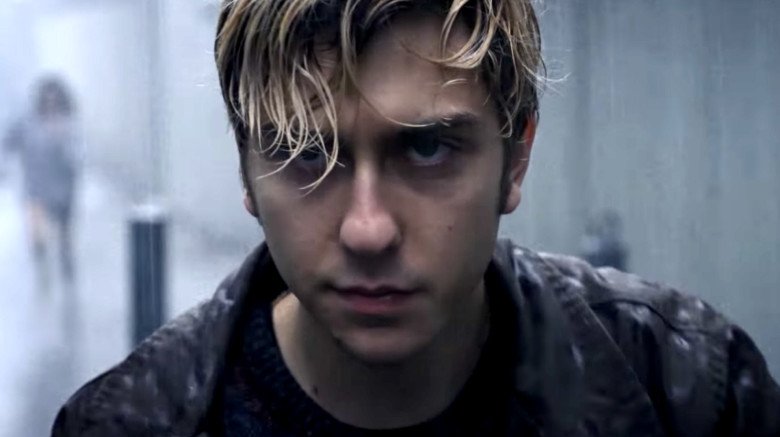Death Note Director Opens Up About Whitewashing Criticism
Director Adam Wingard has finally opened up about whitewashing, particularly in relation to his upcoming movie Death Note.
When news of Wingard's Death Note, a live-action adaptation of the well-known and beloved Japanese manga written by Tsugumi Ohba and illustrated by Takeshi Obata, first broke, fans erupted in dissatisfaction. Many claimed Wingard and the team behind the movie had whitewashed the story, given that the majority of characters' surnames were anglicized (Light Yagami to Light Turner, Misa Amane to Mia Sutton, Soichiro Yagami to James Turner) and that the film takes place in Seattle, Washington rather than the original Tokyo, Japan. Others criticized the casting of Nat Wolff, a white actor, to play Light, who's Japanese in the source text.
Though Death Note producer Roy Lee has already stated that he doesn't believe the adaptation commits any kind of whitewashing because of the new location and the "diverse" cast, fans were holding out hope that Wingard would step up and say something beyond his one-off tweet from June of this year. He finally did in an interview with Vulture, but he echoes much of the same sentiments Lee made previously.
"[Whitewashing is] one of those things where it's a good conversation to be having, and it wasn't one we were really expecting," Wingard stated. "It wasn't until Ghost in the Shell cracked it open [that] it became a conversation. But by then, we had already cast all of that stuff."
Wingard reiterated more of Lee's remarks, claiming that the narrative is completely different thanks to the new setting and the fact that the characters are now American. "It's not just taking a character and trying to say a white kid is a Japanese kid. It is a whole new thing. The characters are all very different and it is a different kind of experience all together," the director said.
He added that his goal for Death Note was to create something that hadn't been seen before in Japan, and that his approach was to "let go of the original source material." Wingard explained, "[It was] about creating a new experience out of it. This stuff has already been made into movies in Japan. The anime itself is an adaptation, and a lot of those things are on the nose, so this was a chance to re-explore the material in a new light."
Another Death Note producer Masi Oka, who's known for his role as Hiro Nakamura on Heroes, backed up the notion that the characters in Netflix version weren't written to be Asian. "The whole idea of whitewashing is putting white people in roles that were meant to be a different race. But this wasn't specifically a racially bound story, because it was set in America," he told Vulture. "Anyone could have played that title role, whether it was white, African-American, Latino-American, or Asian-American. Anyone could have played that role. But at the end of the day, Nat [Wolff] knocked it out of the park, and he fit Adam's vision for the role. He did an amazing job."
It appears that everyone involved with Death Note doesn't really understand why the film is garnering backlash or whitewashing allegations, Instead, it looks like they're waiting for the film's official release to truly take into consideration fans and critics' thoughts.
Along with Wolff as Light, Death Note stars Shea Whigham as James Turner, Willem Dafoe as Ryuk, Lakeith Stanfield as L, and Margaret Qualley as Mia Sutton. It's set to arrive on Netflix on August 25.
In the meantime, discover everything coming to Netflix this month.
